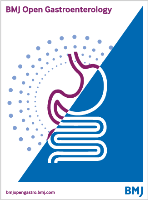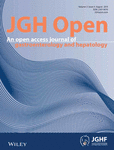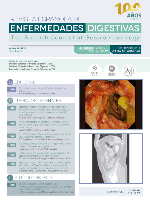
Cellular and Molecular Gastroenterology and Hepatology
Scope & Guideline
Advancing knowledge in gastrointestinal and liver health.
Introduction
Aims and Scopes
- Gastrointestinal and Liver Disease Mechanisms:
Focuses on the cellular and molecular basis of diseases affecting the gastrointestinal tract and liver, including inflammatory bowel diseases, liver fibrosis, and hepatocellular carcinoma. - Host-Microbiome Interactions:
Explores the complex relationships between gut microbiota and host physiology, particularly how these interactions affect disease states and therapeutic outcomes. - Immunological Responses:
Investigates the immune mechanisms involved in gastrointestinal and liver diseases, including the roles of various immune cells and cytokines in disease progression and resolution. - Therapeutic Interventions:
Studies novel therapeutic approaches, including pharmacological treatments, nutritional interventions, and biomedicine, aimed at ameliorating gastrointestinal and liver diseases. - Regenerative Medicine and Stem Cell Biology:
Examines the potential for regenerative therapies and the role of stem cells in repairing damaged tissues in the gastrointestinal tract and liver. - Translational Research:
Emphasizes the translation of basic research findings into clinical applications, bridging the gap between laboratory studies and patient care.
Trending and Emerging
- Microbiome Research:
There is a growing focus on the role of the gut microbiome in health and disease, particularly its influence on immune responses, metabolic health, and therapeutic outcomes in gastrointestinal disorders. - Personalized Medicine:
Research is increasingly oriented towards personalized approaches in treatment, exploring genetic, epigenetic, and environmental factors that influence individual responses to therapies. - Inflammation and Immunology:
Emerging studies are delving into the complex interplay between inflammation and immune mechanisms in gastrointestinal diseases, particularly the roles of specific immune cell populations and cytokines. - Cancer Biology and Therapeutics:
There is a notable rise in research addressing the molecular underpinnings of gastrointestinal cancers, including liver cancer, and the development of targeted therapies and immunotherapies. - Regenerative and Stem Cell Therapies:
Interest is growing in the potential of stem cells and regenerative medicine to repair and regenerate damaged tissues in the gastrointestinal tract and liver, indicating a shift towards innovative therapeutic strategies.
Declining or Waning
- Traditional Pharmacological Approaches:
Research focused solely on traditional pharmacological treatments without integrating novel therapeutic modalities has decreased, as there is a growing emphasis on multi-faceted and holistic treatment approaches. - Single-Organ Focus Studies:
Studies that concentrate solely on isolated organ functions without considering systemic interactions or host-microbiome relationships have become less frequent, indicating a shift towards more integrative research. - Basic Science Without Clinical Relevance:
There is a noticeable decline in publications that do not translate into clinical relevance, as researchers increasingly aim to link laboratory findings directly to potential therapeutic applications. - Historical Perspectives and Reviews:
While foundational knowledge remains important, the frequency of purely historical reviews or perspectives has waned, with a preference for cutting-edge research and novel findings.
Similar Journals

Gastrointestinal Disorders
Pioneering Research for a Healthier Digestive FutureGastrointestinal Disorders is a prominent open-access journal published by MDPI, based in Switzerland, that focuses on the latest research and innovations in the fields of gastroenterology, hepatology, and immunology. Since its inception in 2019, the journal has provided a vital platform for researchers and professionals to disseminate their findings, engaging with a global audience keen on advancing knowledge in gastrointestinal health. With a dedicated commitment to high-quality, peer-reviewed articles, Gastrointestinal Disorders has gained recognition in 2023, achieving Q3 status in gastroenterology and notable rankings in several other categories, including a respectable position in the quartiles for hepatology, immunology, and oncology. Despite its recent establishment, the journal has quickly become a valuable resource, facilitating open access to critical insights in the study of gastrointestinal diseases and their management, ensuring that emerging research is readily available to inform clinical practice and educate future professionals.

JOURNAL OF GASTROENTEROLOGY
Shaping the future of gastrointestinal research and care.JOURNAL OF GASTROENTEROLOGY, published by SPRINGER JAPAN KK, is a premier academic journal that has been at the forefront of gastrointestinal research since its inception in 1994. With an impressive Impact Factor and ranking in the top quartile (Q1) of its category, this journal holds a significant place in the field of gastroenterology, currently ranked 12th out of 167 in Scopus, placing it in the 93rd percentile. The journal serves as an essential platform for disseminating innovative research, clinical studies, and reviews that foster advancements in the understanding and treatment of gastrointestinal diseases. Although it does not offer Open Access options, it provides researchers, clinicians, and students access to crucial insights and breakthroughs pivotal to improving patient care and outcomes in gastroenterology. With a commitment to high-quality peer-reviewed content, JOURNAL OF GASTROENTEROLOGY plays a vital role in shaping the future of gastrointestinal health and research.

Hepatology Forum
Connecting professionals for a healthier tomorrow.Hepatology Forum is an esteemed journal dedicated to disseminating cutting-edge research and insights in the fields of gastroenterology and hepatology. Published by KARE PUBL in Turkey, this journal serves as a vital platform for researchers, clinicians, and healthcare professionals aiming to advance their knowledge and practices related to liver diseases and gastrointestinal disorders. With an ISSN of 1307-5888 and an E-ISSN of 2757-7392, it features peer-reviewed articles that encompass a wide range of topics from basic research to clinical applications. Although categorized in the Q3 quartile for both gastroenterology and hepatology in 2023, Hepatology Forum continues to show significant potential for growth and impact, as evidenced by its Scopus rankings. Through its commitment to open scientific exchange, the journal not only facilitates the sharing of innovative methodologies and findings but also fosters networking among professionals in the field. As it converges through the years from 2020 to 2024, Hepatology Forum remains an important resource for the advancement of liver health and diseases, appealing to both established experts and emerging scholars alike.

BMJ Open Gastroenterology
Leading the Way in Innovative Gastroenterological ResearchBMJ Open Gastroenterology is a premier open access journal published by the esteemed BMJ Publishing Group, focusing on the dynamic and evolving field of gastroenterology. Established in 2014, the journal has rapidly ascended in stature, reflected in its impressive 2023 Q1 ranking in gastroenterology and its position within the top 25% of journals in the category according to Scopus. With a mission to disseminate high-quality, peer-reviewed research with global significance, the journal provides a vital platform for researchers, professionals, and students alike to share their findings and advancements in gastrointestinal medicine. Operating from its headquarters in London, England, the journal's open access format ensures wide visibility and accessibility of cutting-edge research, making it an invaluable resource for those dedicated to improving patient care and driving innovation in gastroenterological sciences. By engaging with this journal, contributors and readers can stay at the forefront of critical developments in the field, fostering a collaborative environment for knowledge exchange.

JGH Open is a prominent open-access journal dedicated to advancing knowledge in the fields of Gastroenterology and Hepatology, published by WILEY. Since its inception in 2017, the journal has served as a crucial platform for researchers, professionals, and students to disseminate innovative research findings and clinical insights. With an impact factor and Scopus rankings reflecting its steady growth—ranking in the 3rd quartile for both Gastroenterology (Q3) and Hepatology (Q3)—JGH Open is positioned within the competitive landscape of medicine. Its commitment to open access enhances the visibility and accessibility of high-quality research, ensuring that significant advancements in understanding diseases of the gastrointestinal tract and liver reach a broad audience. With a focus on collaboration and dissemination of knowledge, JGH Open aims to contribute to the global discourse and improve outcomes in gastrointestinal health.

REVISTA ESPANOLA DE ENFERMEDADES DIGESTIVAS
Connecting researchers and clinicians for better outcomes.REVISTA ESPANOLA DE ENFERMEDADES DIGESTIVAS, a pivotal Open Access journal published by ARAN EDICIONES, S A, has been at the forefront of advancing the field of gastroenterology since its inception in 1990. With a robust commitment to disseminating high-quality research, the journal provides a platform for researchers, clinicians, and students to share innovative findings and insights concerning digestive diseases. The journal is characterized by its Q3 ranking in both Gastroenterology and Miscellaneous Medicine categories, indicative of its significant contributions to these fields, and is positioned within the 36th percentile of Scopus rankings for medicine related to gastroenterology. Based in Spain, REVISTA ESPANOLA DE ENFERMEDADES DIGESTIVAS has embraced the Open Access model since 2004, ensuring that its articles are readily available to a global audience without financial barriers. The journal not only supports academic discourse but also plays a crucial role in improving clinical practices and health outcomes related to digestive health.

Korean Journal of Gastroenterology
Your Gateway to Gastrointestinal Research and InnovationKorean Journal of Gastroenterology (ISSN: 1598-9992, E-ISSN: 2233-6869), published by the Korean Society of Gastroenterology, has been a premier outlet for research and advancements in the field of gastroenterology since its inception in 1968. This open-access journal, based in South Korea, fosters a global dialogue on gastrointestinal health, embracing contributions from a diverse array of disciplines within medicine. It is currently ranked in the Q4 quartile for miscellaneous medicine and holds a Scopus rank of #323 out of 636 in general medicine, reflecting its commitment to publishing impactful research despite its relatively recent establishment in high-impact metrics. With a continuous publication timeline extending through to 2024, the journal aims to enhance understanding of gastrointestinal disorders and promote innovative treatments, making it an essential resource for researchers, clinicians, and students alike who seek to stay abreast of the latest developments and clinical applications in gastroenterology.

Minerva Gastroenterology
Elevating Clinical Practices with Cutting-Edge InsightsMinerva Gastroenterology, published by EDIZIONI MINERVA MEDICA, is a notable academic journal dedicated to advancing the field of gastroenterology and related disciplines. With an ISSN of 2724-5985 and an E-ISSN of 2724-5365, this journal gathers innovative research from diverse areas including internal medicine, endocrinology, and metabolism. Though characterized by its open-access policies, Minerva Gastroenterology aims to provide a platform for high-quality scholarly articles with an emphasis on critical reviews, clinical studies, and translational research. Since its inception in 2021, the journal has managed to secure a reputation reflected in its Q3 rank across multiple categories in 2023, as well as its standing in Scopus rankings, positioning it in the 45th to 47th percentile among renowned medical journals. Situated in Turin, Italy, it fosters collaboration and knowledge-sharing among researchers and practitioners, making it an essential resource for those seeking to deepen their understanding of gastroenterological conditions and enhance clinical practices.

Clinical Gastroenterology and Hepatology
Exploring Breakthroughs in Liver and Gastrointestinal ResearchClinical Gastroenterology and Hepatology, published by Elsevier Science Inc, stands as a leading journal in the fields of gastroenterology and hepatology. With an ISSN of 1542-3565 and an E-ISSN of 1542-7714, this esteemed publication has earned its place in the top quartile (Q1) of both gastroenterology and hepatology categories as of 2023, ranking 6th out of 167 and 7th out of 82 respectively. The journal aims to disseminate innovative research, clinical studies, and case reports that advance the understanding and treatment of gastrointestinal and liver diseases. Targeted towards researchers, healthcare professionals, and students, it provides crucial insights into emerging therapies and medical advancements. Clinical Gastroenterology and Hepatology is not only a pivotal resource for contemporary gastroenterological research but also fosters collaboration and knowledge-sharing within the medical community. With a converging publication history from 2003 to the present, the journal continues to build on its solid foundation of scientific excellence and relevance.

Translational Gastroenterology and Hepatology
Fostering Global Collaboration in Gastrointestinal Science.Translational Gastroenterology and Hepatology, published by AME Publishing Company, stands as a pivotal platform for advancing the understanding and treatment of gastrointestinal and liver diseases. With its focus on translational research, this journal aims to bridge the gap between laboratory discoveries and clinical applications, thus fostering improvements in patient care. Although specific metrics like H-Index and Scopus ranks are currently unavailable, the journal is committed to maintaining high standards of scholarly communication and excellence. As an open-access publication, it ensures that valuable findings are readily accessible to a global audience, promoting collaboration and innovation among researchers, clinicians, and healthcare professionals invested in gastroenterology and hepatology. The journal's dedication to disseminating groundbreaking research makes it an essential resource for those seeking to stay at the forefront of these ever-evolving fields.